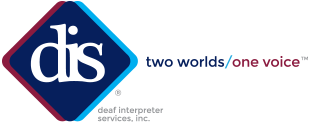
By Marilyn L. Weber
Between finding the host city and venue, accommodating hotel rooms for attendees, figuring out the right time of year, etc., meeting planners have their work cut out for them. But there’s one important aspect to putting on a conference that can be overlooked, and that is making sure everyone has the same experience by being aware of and preparing for attendees with special needs, including those who are deaf or hard of hearing. Here are six items to consider.
1. Use your resources.
Don’t rely on your friend Google to help find relevant services. First, check with the chamber of commerce or CVB in your meeting’s host city, which can arrange a list of preapproved, certified companies providing service needs for attendees who are deaf or hard of hearing.
2. Vet the organizations.
When reviewing companies for services like sign language or oral interpreting, ensure they have the necessary insurance required to handle the event. Ideally they should have a complete general liability package covering everything from liability to errors and omissions, which is crucial when working with interpreters in a professional setting.
3. Review past experiences.
Confirm the local company providing these services has prior experience in handling events of a similar size and type to yours. For example, a company with only a few interpreters who mostly attend doctor’s office visits with a deaf or hard of hearing patient may not have the experience or skill set to handle eight-plus hours a day at a conference, doing platform interpreting for hundreds of attendees. Ask the service company for references—any reputable company should be able to comply and provide plenty.
The size of the interpreting company is crucial as well. It should have a large enough team that if someone calls in sick at the last minute, the interpreter can easily be replaced. If there will be multiple deaf attendees at an event, the interpreting service should provide an on-site interpreter coordinator who will be responsible for handling scheduling.
4. Determine scheduling needs.
Any sessions lasting more than an hour will require two interpreters working together as a team. Even if deaf or hard of hearing attendees submit their session itineraries in advance, assume they may change their minds on which sessions they will attend. They should have the same option as everyone else to go to whichever sessions they choose, so arrange for email or texting communication with your team in case these attendees decide to move to another room.
If there will be international attendees at your conference, ask your interpreting service about their capabilities for handling multiple languages. American Sign Language and French Sign Language, for example, are very different.
5. Understand the culture.
Even though federal law requires accessible communication, it’s important for an organization to view deaf attendees as a culturally diverse group as opposed to merely individuals with a disability. As there are a variety of different sign language modalities, interpreting is more than simply knowing sign language. The company providing the interpreters should have a complete understanding of the uniqueness and complexity of this culturally diverse group. Sign language and the deaf community should be their specialty.
6. Market the services.
Including a mention that sign language interpreters will be provided by request in your marketing could open up your conference to a potentially new audience that may not have considered attending otherwise.
By being aware of your audience, planning ahead and partnering with a reputable company, you can ensure all attendees will be treated equally and receive what they expect from the event.
Marilyn L. Weber is president and CEO of Deaf Interpreter Services Inc., a certified sign language interpreter and an advocate for the deaf community for the past 25 years. Contact her at marilyn@deaf-interpreter.com.
Photo credit: Converse College

